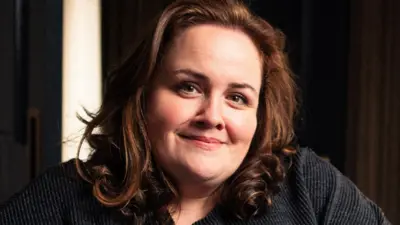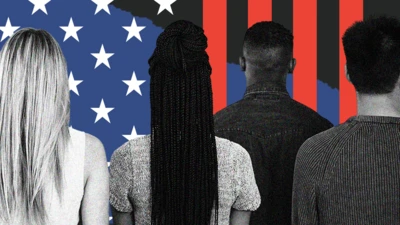We've updated our Privacy and Cookies Policy
We've made some important changes to our Privacy and Cookies Policy and we want you to know what this means for you and your data.
Covid: UK booster jabs to start next week and vaccine passports not ruled out in England's 'Plan B'
Here are five things you need to know about the coronavirus pandemic this Tuesday evening. We'll have another update for you on Wednesday morning.
1. Booster plan to start next week
The government has been setting out its plan to tackle Covid over autumn and winter - when cases are expected to rise. A key part of that is to offer booster vaccines to all over-50s, younger adults with health conditions and frontline health and care workers. The booster should be given at least six months after a second dose - with the Pfizer jab recommended. Experts say there are some signs the protection offered by the vaccine may start dropping off several months after the second dose - with the most vulnerable groups most at risk of this. The boosters are being rolled out across the UK. Read more in our explainer here.
Image source, Getty Images
2. Plan B
The booster jab programme was part of "Plan A" in a winter plan for England unveiled by Health Secretary Sajid Javid earlier - which also includes promoting vaccines and continuing testing and isolation rules. But if things get more serious, Boris Johnson outlined a "Plan B". That could include mandatory vaccine passports for mass events, and face coverings could also be legally mandated in some places. Guidance on working from home may also be issued under this plan, but Mr Johnson stressed the benefit of returning to the workplace for younger people. We've explained the two plans here.
3. 'So many calls and not enough ambulances'
In Scotland, the health service is under pressure like never before, with hospitals across the country operating at, or near, full capacity. Staff shortages due to high rates of Covid infection are pushing many of those left on duty to their limits.
Call handlers are dealing with about 10,000 more 999 calls a month than last summer. The impact is being felt by patients as they wait for hours for medical help. BBC Scotland's health correspondent Lisa Summers spent the night shift with one ambulance in crew in Lothian, to witness the level of demand they are facing.
4. Northern Ireland High Street voucher scheme
In Northern Ireland a High Street voucher scheme to help pandemic-hit businesses in retail and hospitality will open for registration on 27 September - with the first cards being issued on 4 October, the government has said.
The £145m programme will offer pre-paid cards worth £100 to all over-18s and will have to be spent by 30 November. One business owner said the money would be a boost at a time when there is a "natural lull" and "people have a few less pounds in their pocket to spend".
5. China's Covid-fuelled surfing boom
And in China - the tourism industry is seeing a Covid-fuelled surfing boom. People are discovering it in increasing numbers, thanks in part to restrictions on foreign travel in the wake of the pandemic.
And there's more...
All children aged 12-15 will be offered one dose of a Covid vaccine. It is hoped the measure will help prevent further disruption to their education. Read here how it will help and what's being done in the rest of the world.
You can find further information, advice and guides on our coronavirus page.
Image source, BBC
What questions do you have about coronavirus?
In some cases, your question will be published, displaying your name, age and location as you provide it, unless you state otherwise. Your contact details will never be published. Please ensure you have read our terms & conditions and privacy policy.
Use this form to ask your question:
If you are reading this page and can't see the form you will need to visit the mobile version of the BBC website to submit your question or send them via email to YourQuestions@bbc.co.uk. Please include your name, age and location with any question you send in.
- A VOYAGE TO THE EDGE OF REASON: New epic drama streaming on BBC iPlayer
- THE CARDIFF FIVE: One of Britain's most notorious miscarriages of justice
Top Stories
Features & Analysis
Most read
Content is not available








